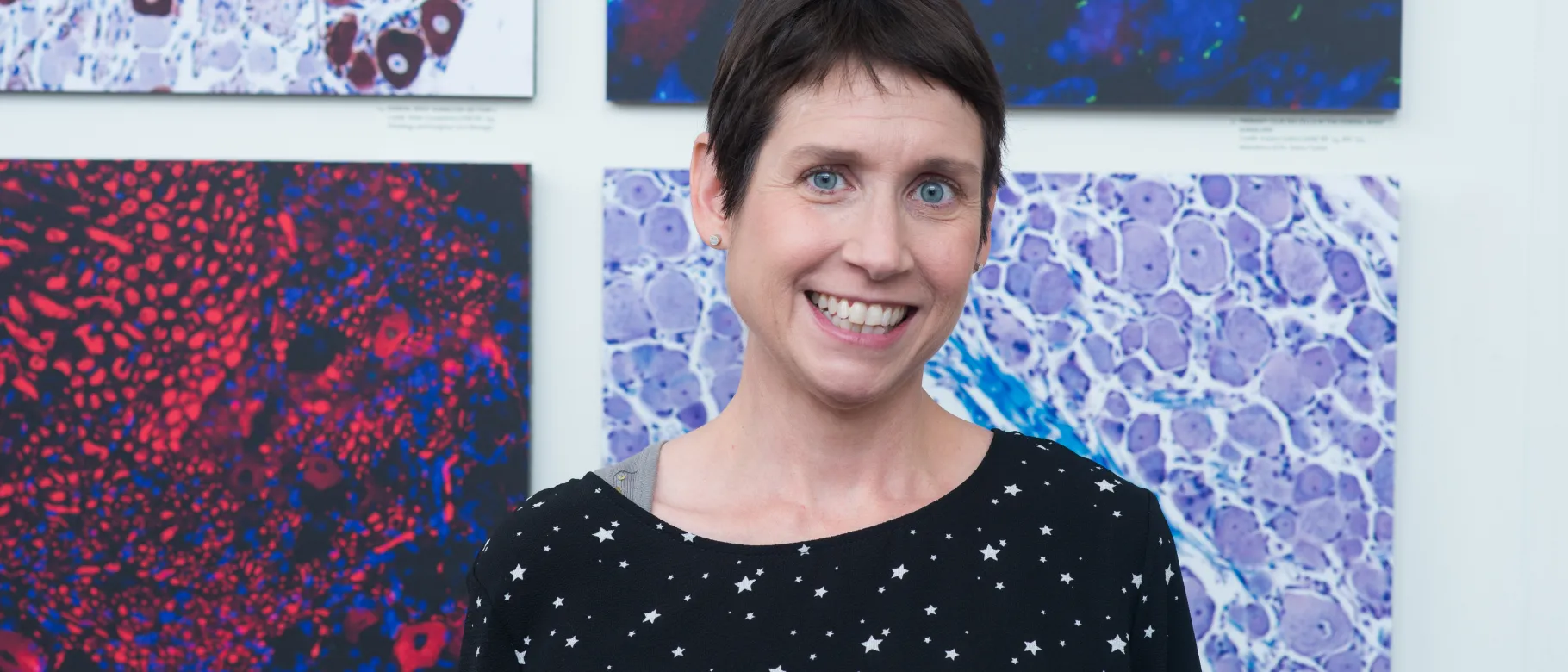Teresa Dzieweczynski named Ludcke Chair of Liberal Arts and Sciences for 2018-2019

Teresa Dzieweczynski, Ph.D., associate professor in the Department of Psychology and program coordinator of the Animal Behavior major, has been named the Ludcke Chair of Liberal Arts and Sciences for 2018-2019.
The Ludcke Chair, funded by a generous bequest from the estate of Eleanor Ludcke (Westbrook College Class of 1926), is presented annually to a tenured member of the faculty of the College of Arts and Sciences in recognition of his or her outstanding academic accomplishments.
The chair holder must have attained the ideal of the “teacher/scholar,” a dedicated educator and productive researcher who has given time generously to the University of New England over a significant period.
Dzieweczynski is a well-published ethologist whose work on the behavioral effects of inadvertent pharmaceutical exposure in fish has resulted in over 30 publications in journals including Animal Behaviour, Behavioral Ecology, Hormones and Behavior, and Aquatic Toxicology.
Work by Dzieweczynski and her undergraduate research team has also been featured on the Discovery Channel and in Discover Magazine.
Since arriving at UNE in 2005, Dzieweczynski has mentored more than 60 students in her lab and countless other undergraduates through inquiry-based courses within the Animal Behavior major.
Those students include multiple Council for Undergraduate Research Posters of the Hill attendees, Animal Behavior Society undergraduate grant recipients, and a Goldwater Scholar.
They have gone on to have success in a wide range of career paths, including behavioral field research at government agencies, veterinary medicine, animal care, nursing, and physical therapy. One former research assistant is even following in Dzieweczynski’s footsteps as a lecturer in animal behavior at UNE.
Dzieweczynski’s mentoring abilities were recognized by the Council of Undergraduate Research when she was selected as the 2016 Mid-Career Mentoring Award recipient.
She is actively involved in mentoring experiences and mentor training through the Animal Behavior Society and International Society of Behavioral Ecologists.
Dzieweczynski earned her Ph.D. in animal behavior, ecology, and evolutionary biology, with a minor in psychology, from Indiana University in Bloomington, Indiana. Her expertise is in communication networks, animal personality and behavioral ecotoxicology.
Her research group is currently examining how pharmaceuticals and personal care products, such as birth control pills and sunscreen, that enter the aquatic environment cause negative fitness-related impacts on exposed individuals.
Working with a variety of fish species, including Siamese fighting fish and herring, Dzieweczynski and her team hope to determine if individuals vary in their sensitivity to compounds found in the pharmaceutical products, identify what characteristics are associated with resiliency, and use this information to inform conservation plans.
Dzieweczynski said, “I can think of no greater honor than to be recognized by my peers as a teacher-scholar. While I love the puzzle of a good research question, I love using science as a tool to mentor students. I can’t describe the joy and fulfilment that I get from interacting with students and seeing their confidence and problem-solving ability grow through their involvement in research.”